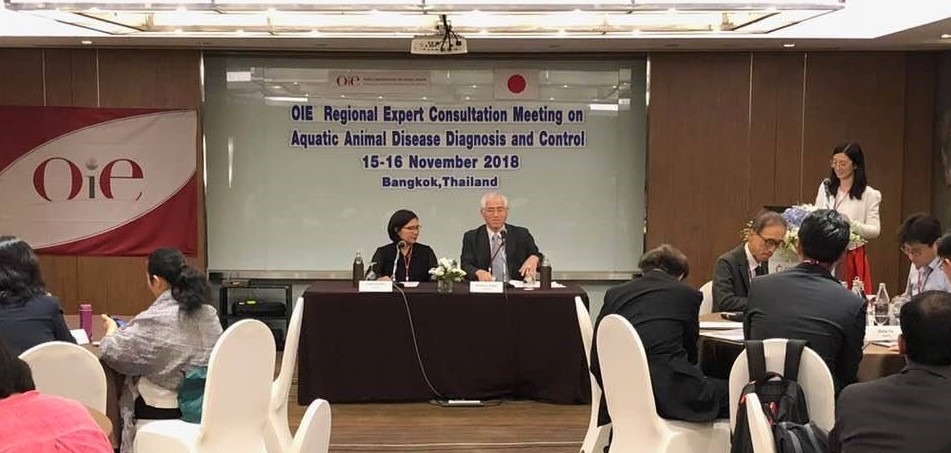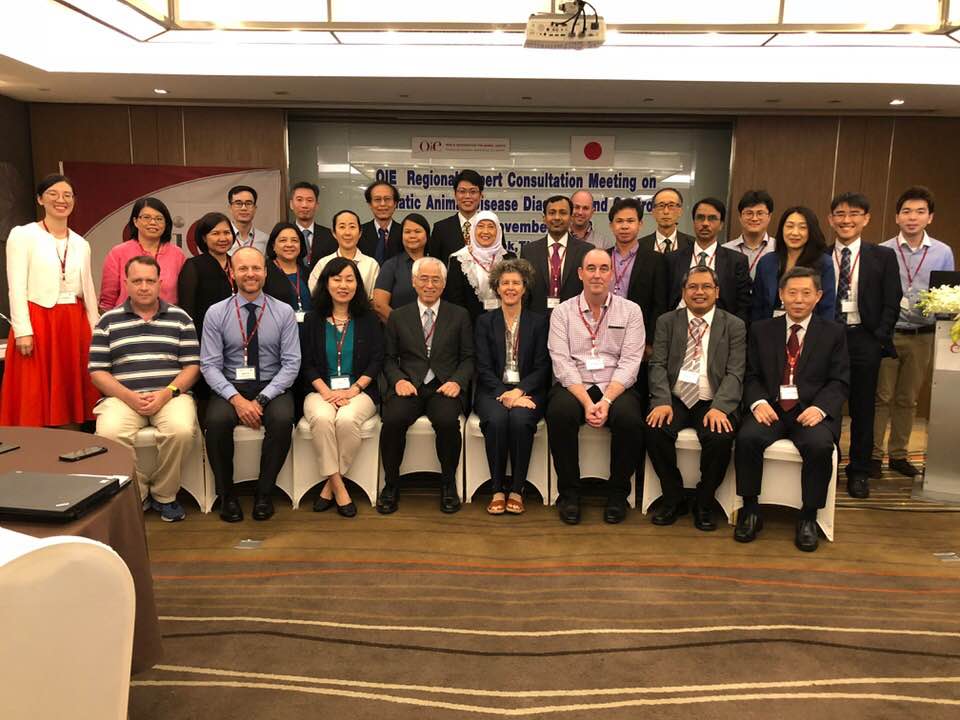


Aquaculture is the fastest growing food-producing sector in the world. Historically, the Asia-Pacific region has dominated global aquaculture production, both in quantity and value; the region contributed 65 million tonnes of aquatic animals, amounting to 88 percent of the global total in 2014 (FAO). However, this rapid growth has associated risks which are further compounded by the increasingly globalised trade in live aquatic animals and their products. Unfortunately, aquatic animal disease outbreaks continue to cause significant losses in aquaculture production and adverse economic impacts throughout the world. The OIE, in collaboration with other partners, has been providing support to OIE Members (Members) in the region to develop quality aquatic animal health services.
The OIE organised the Regional Expert Consultation Meeting on Aquatic Animal Disease Diagnosis and Control in Bangkok, Thailand, from 15 – 16 November 2018.
The objectives of this meeting were to:
Thirty one participants attended this meeting including representatives from Bangladesh, Cambodia, China, Chinese Taipei, India, Indonesia, Korea (Republic of), Malaysia, Philippines, Thailand and Vietnam. It offered an invaluable opportunity to bring together the President of Aquatic Animal Health Standards Commission (AAHSC) of the OIE, experts from OIE Reference Centres in the region, as well as regional partners including FAO, the Network of Aquaculture Centres in Asia-Pacific (NACA) and Southeast Asian Fisheries Development Centre (SEAFDEC) to address issues on aquatic disease diagnosis and control.
The programme focused on sharing information between OIE Reference Centres, Members and regional partners as well as identifying the needs of the Members and how Reference Centres could support Members in strengthening their capacities in disease diagnosis, prevention and control. The meeting also included group activities on strengthening networks within and between OIE Reference Centres and Members, identifying diagnostic challenges for emerging diseases and developing future initiatives and an action plan for improving aquatic animal disease diagnosis and control.
Two topics identified as important future initiatives were:
1) To establish a Platform for Information Sharing
The OIE Regional Representation for Asia and the Pacific (RRAP) agreed to create a webpage to serve as the platform for sharing of training materials and scientific information on aquatic animal health. The information will be kindly provided by experts from OIE Reference Centres.
2) To establish a Regional Collaboration Framework
During the discussion on the next steps forward, the participants in the meeting generally agreed with the proposal of establishing a Regional Collaboration Framework to strengthen the collaboration between the OIE Members, OIE Reference Centres, National Reference Laboratories and national OIE Focal Points for Aquatic Animals as well as other regional partners. The focus would be addressing needs associated with emergency response and laboratory capacity building in aquatic animal diseases. Refer to the draft proposal attached below for further details.

